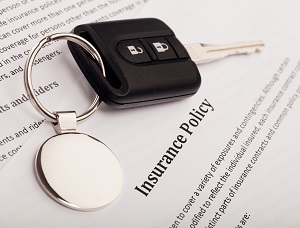 Driving is a public activity. You have to take responsibility for your duty to others' safety. In the event of a problem on the road, more people than just yourself might become involved, after all. That could mean that your auto liability insurance comes into play. But, what if you don't have it? You might very well find yourself facing a few legal penalties, including an SR-22 form. Why is this the case?
Driving is a public activity. You have to take responsibility for your duty to others' safety. In the event of a problem on the road, more people than just yourself might become involved, after all. That could mean that your auto liability insurance comes into play. But, what if you don't have it? You might very well find yourself facing a few legal penalties, including an SR-22 form. Why is this the case?
Driving without insurance is dangerous. SR-22s are ways to force uninsured drivers to carry coverage. Nevertheless, you’ll probably thank yourself when you get coverage regardless of requirements. The SR-22 is a significant penalty. It is best to avoid at all costs.
What is an SR-22?
The SR-22 is simply a form. It proves for your state's police or DMV that you have active car insurance. Contrary to popular belief it is not a policy in and of itself. It only attaches to existing coverage. Not all drivers have to carry SR-22s. They exist as penalties for those who commit particularly serious driving infractions.
Upon committing an offense, a driver's operating risks automatically increase. Therefore, the need for car insurance goes up as well. High-risk drivers need to have insurance behind them if they cause harm, after all. The SR-22 verifies that the most-hazardous drivers carry active coverage.
Among the infractions that might trigger an SR-22 is if you drive without insurance. Given that the SR-22 deals directly with insurance, it's easy to understand why going without might trigger the penalty.
Why Driving Without Insurance Might Trigger an SR-22
Most states view car insurance as an important piece of consumer protection. Almost all have laws in place that require drivers to carry minimum levels of coverage.
The amount of coverage you have to carry will vary from state to state. Regardless of amount required, the premise behind these laws is the same. States want to protect not only your own, but also other drivers’ security on the road. There’s always a chance you could cause harm to another party (or they to you). Should this happen, your respective insurance policies come into play.
If you fail to carry coverage, you put both yourself and others in the way of harm. You might struggle to pay for your own damage, or those of others for which you are liable. That increases both parties’ risk of insecurity. No one wants to see that happen. That’s why states might force you to carry an SR-22. It will ensure you always have coverage.
Establishing the Appropriate Car Insurance
It's best to avoid the SR-22 penalty in all cases. You should therefore consider carrying insurance as mandatory to avoiding the punishment. How can you get the appropriate coverage?
First, always carry the minimum coverage as defined by Georgia Law. The state requires you to carry:
- Bodily Injury Liability: $25,000 per person
- Bodily Injury Liability: $50,000 per accident
- Property Damage Liability: $25,000 per person
You also have the option to carry uninsured/underinsured protection. While you can reject this coverage, you do have to carry minimum levels if you take the coverage.
Also, consider investing in additional protection. Some of that which might protect you includes:
- Collision coverage for vehicle damage from wrecks
- Comprehensive coverage for vehicle damage from non-accident hazards
- Medical payments coverage insuring you or your passengers against bodily injuries
Importantly, talk to your insurance agent about the appropriate coverage for you. The state's minimum requirements might not prove adequate for most people. Increasing your limits to match your personal investment often proves extremely beneficial.
Filing an SR-22 Penalty
In the event that you do face an SR-22 penalty, don't wait to take action. The sooner you act, the easier the penalty might prove.
- Never attempt to hide the penalty from your insurer. They will likely find out. Policy cancellation might result because of this dishonesty.
- The earlier you contact your insurer, the sooner you can return to the road securely. You might have a requirement not to drive until you file the form.
- Ask your agent whether your insurance policy will continue to cover you with the penalty. Some insurers do not issue policies to SR-22 recipients. At times, you might have to switch carriers when you file the form. Your agent can help you navigate this process.
- Make sure your current policy contains enough coverage for your needs. Also ask your Atlanta auto insurance agent what you can do to keep policy costs low. SR-22s often trigger premium hikes. Therefore, start early to decide how to minimize the effects.
Keep in mind, driving without insurance isn't the only infraction that might trigger an SR-22. However, by carrying the SR-22, you can make sure you keep a penalty active at all times. If you ever let your coverage lapse, the SR-22 will void as well. That could lead to further penalties because you let your coverage drop. So, why take this risk in the first place? Always carry car insurance in Georgia.